"Back to Black" star, director on telling Amy Winehouse story
Marisa Abela & Sam Taylor-Johnson on bringing Amy Winehouse's story to the screen, framework of the movie being "Back to Black" album, Abela on getting into the role including doing the singing, both share new perspective on Winehouse's music
Amy Winehouse’s life was cut tragically short in 2011, when she died at just 27 years old. Now, a new biopic, "Back to Black," focuses on telling her story.
However, the movie has faced controversy and backlash over how it handles the singer’s legacy and personal problems, including the two key men in her life, her father, Mitch, and husband, Blake Fielder-Civil.
Right from the start of filming, when paparazzi images of star Marisa Abela on the streets of London hit the internet, people had strong opinions.
Early comments criticized Abela’s appearance while wearing Winehouse’s signature beehive and heavy eye makeup, both of which are messy during a scene on the street.
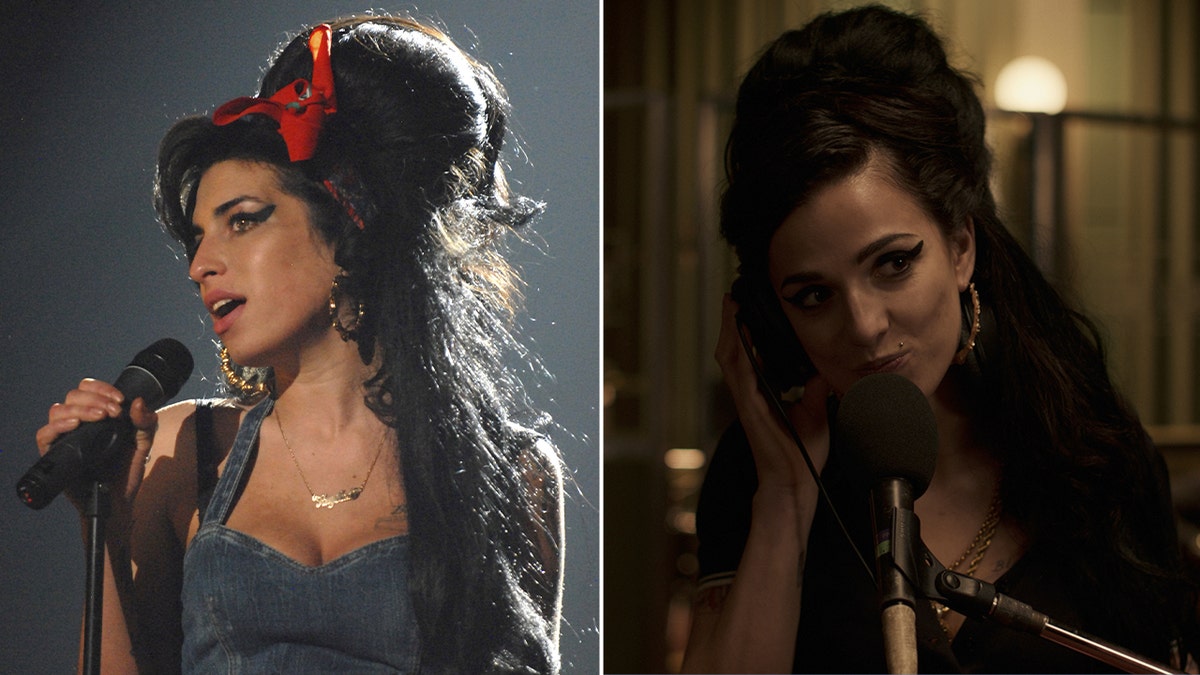
A biopic of Amy Winehouse, played in the film by Marisa Abela, right, faced several controversies ahead of its release. (Getty Images/Focus Features)
THE LIFE OF AMY WINEHOUSE: 1983 - 2011
Fans called it "revolting" and claimed the movie was exploiting and sensationalizing her story, per the BBC.
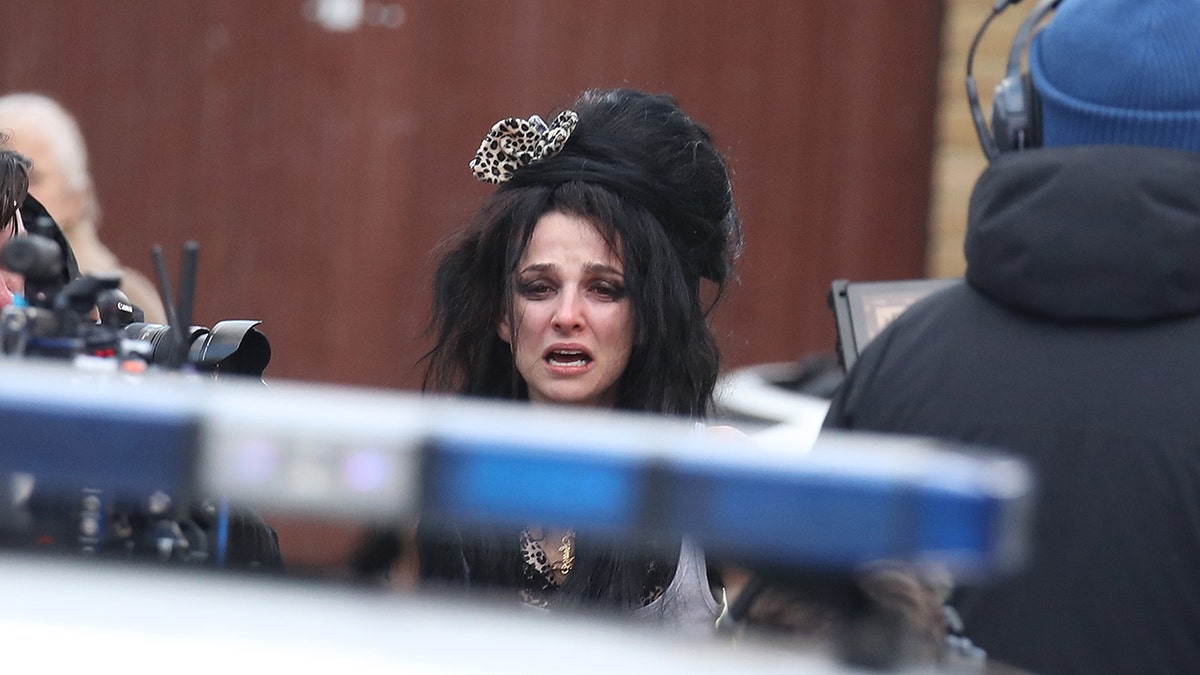
Fans were critical of early paparazzi shots of Marisa Abela in character as Amy Winehouse, concerned her story was being exploited for the film. ( GC Images/GC Images)
Abela told Harper’s Bazaar UK, "It was a lot to deal with. I very quickly shut everything off and tried to focus on doing a good job – that was the most important thing."
She continued, "But it did surprise me: I had thought people who love Amy would have wished for more kindness, gentleness and generosity towards her. It also makes sense that people feel tightly connected to that legend of her and might want to keep ownership over it."
"With hindsight, it’s difficult not to view Amy’s story as a tragic one. Her story has a tragic ending, and tragedy throughout. But Amy’s life didn’t just happen to her," Abela added. "She created a world of music that people appreciate and enjoy, and it’s about bringing people back to the girl from Camden who changed the world with her music."
RICHARD SIMMONS DIDN'T APPROVE PAULY SHORE MOVIE: 'I HAVE NEVER GIVEN MY PERMISSION'
At the New York premiere, Abela also told Entertainment Tonight she understands people’s protectiveness of Winehouse.
"I think I understand it. She’s a big deal, she’s a huge icon, not in the sense we throw it around now. She means so much to so many people, she’s an important artist, so I get, I completely respect it, I feel exactly the same way," she said.
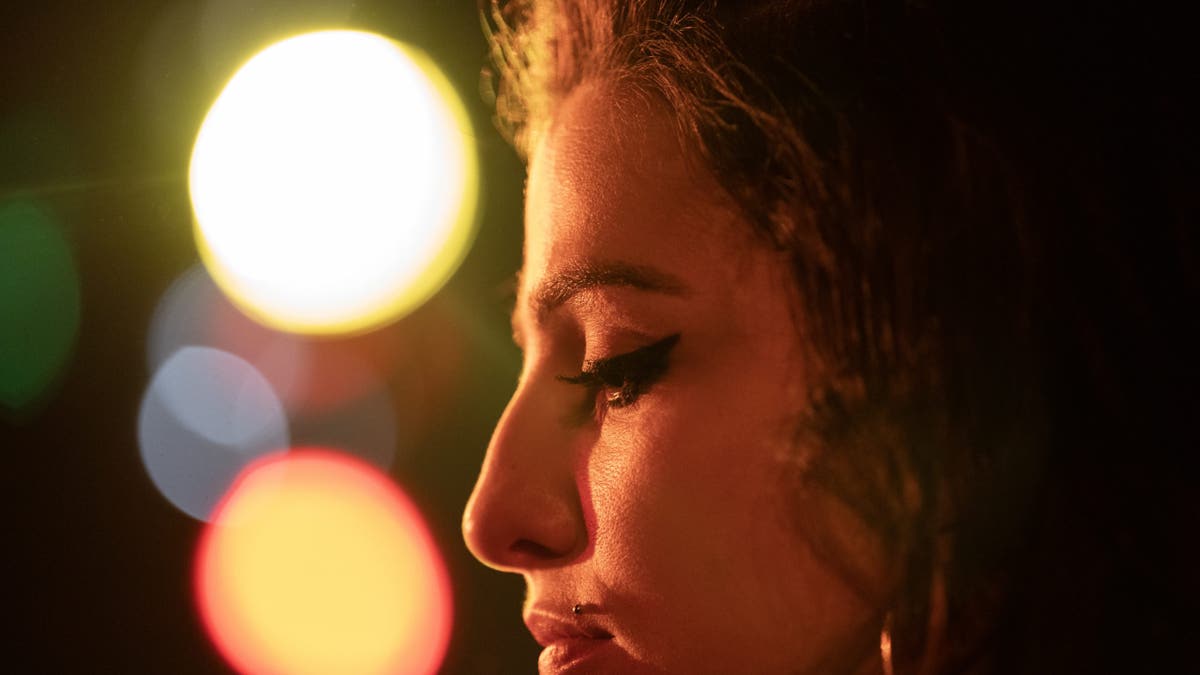
Marisa Abela admitted, "It was a lot to deal with. I very quickly shut everything off and tried to focus on doing a good job – that was the most important thing" when facing criticism from fans of Amy Winehouse. (Dean Rogers/Focus Features)
"But for me, that’s just about throwing myself into work harder and faster and more intensely. There just needed to be no stone unturned when it came to my preparation and I work from a place of intentionality and human perspective, and it just meant immersing myself in that place."
Abela did her own singing for the movie, learned to play guitar and worked with a movement and vocal coach to match Winehouse’s stage persona.
CLICK HERE TO SIGN UP FOR THE ENTERTAINMENT NEWSLETTER
Director Sam Taylor-Johnson initially planned to have Abela lip-sync, but while recording instrumental tracks with Winehouse’s band, music supervisor Iain Cooke told the L.A. Times they found "she was phenomenal."
Abela told the L.A. Times she felt there could have been an "emotional disconnect" with lip-syncing. She did not try to imitate Winehouse, but rather "get as close as possible to something that is recognizable as Amy’s sound."
"That way I could keep her emotional life alive through the songs," Abela continued. "It was really important to me to try. For me, these kinds of films aren’t about tricking an audience into thinking they’re watching the real person. If there are moments where you get completely lost in that person’s emotional truth and psychological life, then that is the point. The singing is just an extension of that."
However, the decision to have Abela sing instead of using Winehouse’s vocals was met with criticism by fans online.
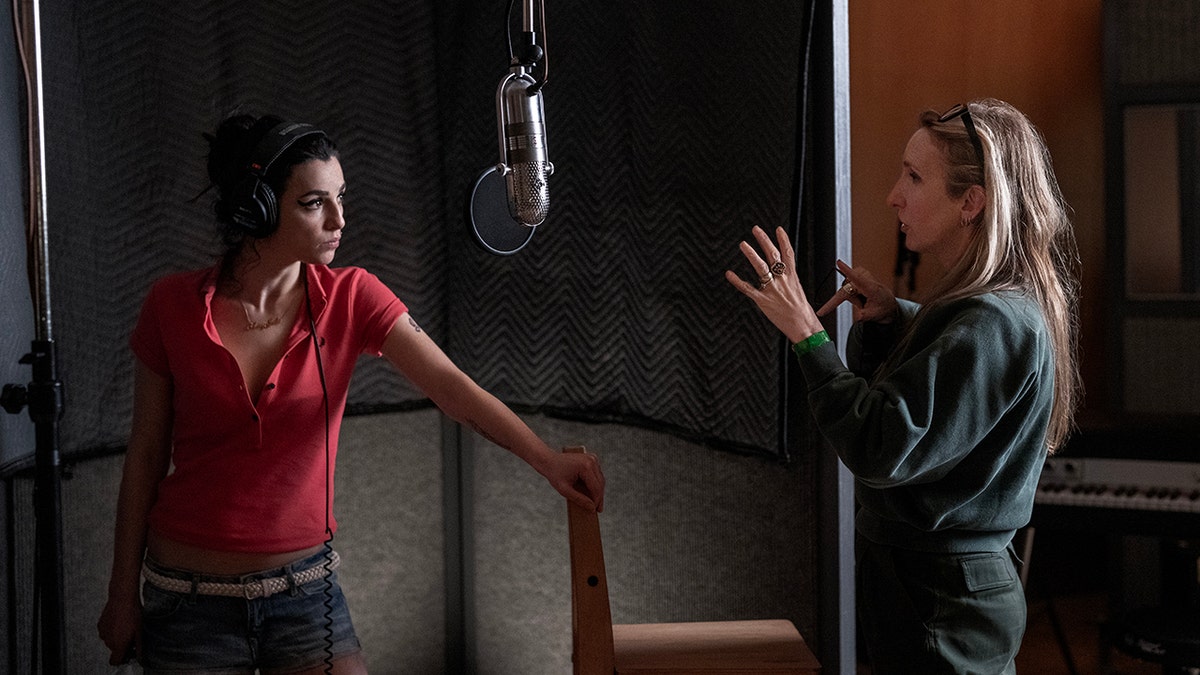
Director Sam Taylor-Johnson initially had not planned on having Marisa Abela sing in the movie, but after some rehearsals, she and the music team approved of her covering Winehouse's songs. (Dean Rogers/Focus Features)
AARON TAYLOR-JOHNSON, 33, DEFENDS MARRIAGE TO WIFE, 57, WHO HE MET AS A TEENAGER
On X, one person wrote, "Having an actress trying to mimic one of the most distinctive voices in recent music history is certainly… a choice."
Another said, "This is an absolute mockery!"
A third wrote, "Amy, I’m so sorry."
Many have also questioned the involvement of Winehouse’s father, Mitch Winehouse, who is also the executor of his daughter’s estate, and head of the Amy Winehouse Foundation, a charity dedicated to helping people overcome addiction issues.

Mitch Winehouse, Amy Winehouse's father, has been criticized by fans for his involvement in "Back to Black." (Getty Images)
LIKE WHAT YOU’RE READING? CLICK HERE FOR MORE ENTERTAINMENT NEWS
Mitch has been accused of exploiting Winehouse while she was alive, profiting from projects and pushing her to perform when she was struggling with her mental and physical health.
The 2015 Oscar-winning documentary "Amy" leaned heavily on these allegations against Mitch, something he denied at the time of the release.
"They are trying to portray me in the worst possible light," Mitch told The Guardian in 2015.
In his interview, he claimed the documentary cut out a key element in his recounting a story about telling people Winehouse did not need rehab.

Mitch Winehouse criticized the 2015 documentary "Amy" for "trying to portray me in the worst possible light." (Getty Images)
AMY WINEHOUSE’S FAMILY SLAMS DOCUMENTARY AS ‘MISLEADING’
"It was 2005. Amy had fallen – she was drunk and banged her head. She came to my house, and her manager came round and said: ‘She’s got to go to rehab.’ But she wasn’t drinking every day. She was like a lot of kids, going out binge-drinking. And I said, ‘She doesn’t need to go to rehab.’ In the film, I’m relating the story, and what I said was: ‘She didn’t need to go to rehab at that time,’" Mitch said, adding emphatically, "They’ve edited me out saying ‘at that time.’"
Mitch spoke with Fox News Digital last year, during the release of the book, "Amy Winehouse: In Her Words," explaining that his daughter was not pressured by the industry the way many assume.
"People like to describe the music industry as coercive and manipulative," he said. "Well, they weren’t with Amy. I don’t know how they are with other people, but they were fantastic to her. We were a family. At no point did they say, ‘Come on, we really need you to write this new album.’… That wouldn’t work with Amy anyway. There was no pressure from anybody for her to write another album. But she was working on another album. She was working on designing dresses. She was always working on very productive projects. Music would have been one of them."
Abela told Harper’s Bazaar UK that she does her best not to "judge" a character she is portraying, especially when it is a real person.

Marisa Abela said she did not want to "judge" Amy Winehouse, explaining, "My job was to get into Amy’s shoes and her soul, and understand why she did the things she did." (Daniel Zuchnik/Variety via Getty Images)
"As an actor, I think you’re making a terrible mistake when you judge a character and a character’s decisions," she told the outlet. "Of course – these are not just characters, they are real people. My job was to get into Amy’s shoes and her soul, and understand why she did the things she did. Amy loved her father very deeply. Nothing else mattered to me: I had to love him like Amy loved him."
The portrayal of Winehouse’s husband from 2007 to 2009, Fielder-Civil, has also come under scrutiny.
Fielder-Civil and Winehouse had a rocky relationship, and both struggled with drugs and alcohol.
The 41-year-old has often been blamed for Winehouse’s death, with fans insisting he enabled her addictions and introduced her to drugs that would lead to her untimely end.
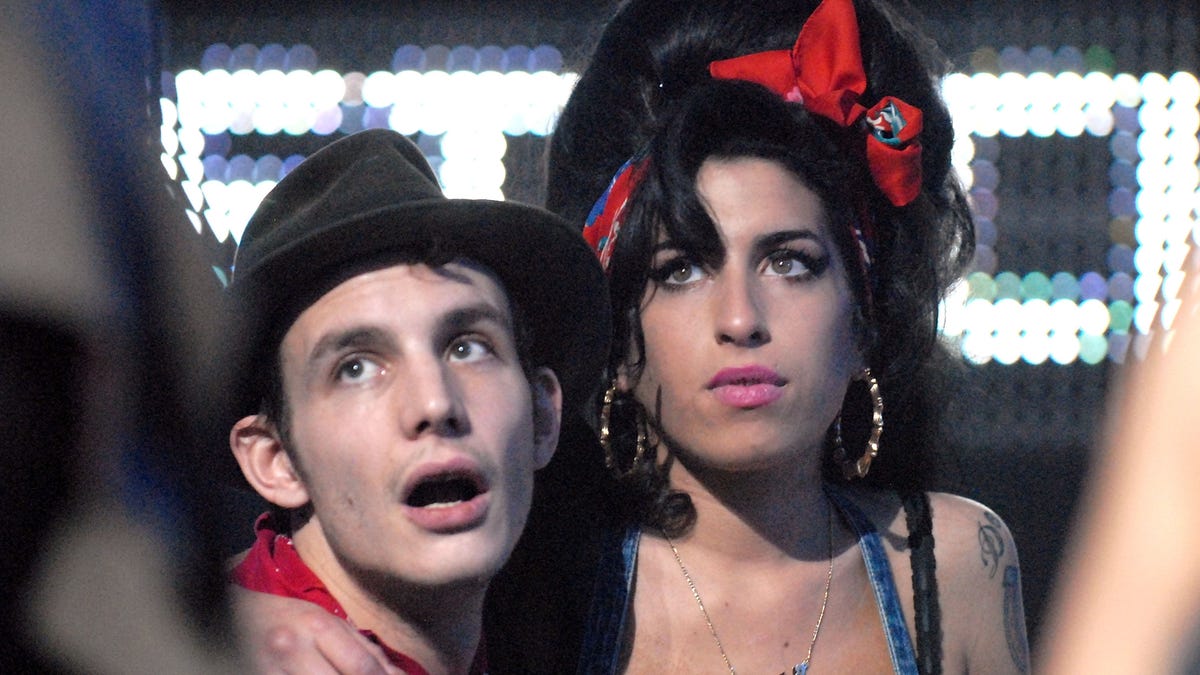
Blake Fielder-Civil and Amy Winehouse had a rocky relationship, and he has often been accused of being a negative influence on her before her death. ( Jeff Kravitz/FilmMagic)
DRUG DEALER SAYS HE SOLD CRACK, HEROIN TO AMY WINEHOUSE NIGHT BEFORE SHE DIED
He told "Good Morning Britain" in 2018, "The drug thing is something that’s been attributed to me for years. The fact is that me and Amy only used drugs together maybe six months of our marriage. That was it. And before that, Amy didn’t use drugs. She smoked cannabis, [and] I did heroin maybe four or five times,"
He added, "People don’t realize Amy didn’t do anything Amy didn’t want to do," but admitted, "I’ll always carry a burden of guilt because I should have acted."
Jack O’Connell, who plays Fielder-Civil in the film, told People at the New York premiere, "I think he got a terrible, both of them got a terrible time with the tabloid press."
He continued, saying the public got the "worst version" of their lives, and they suffered through public scrutiny because they "had their whole lives just spread out for everyone's consumption."
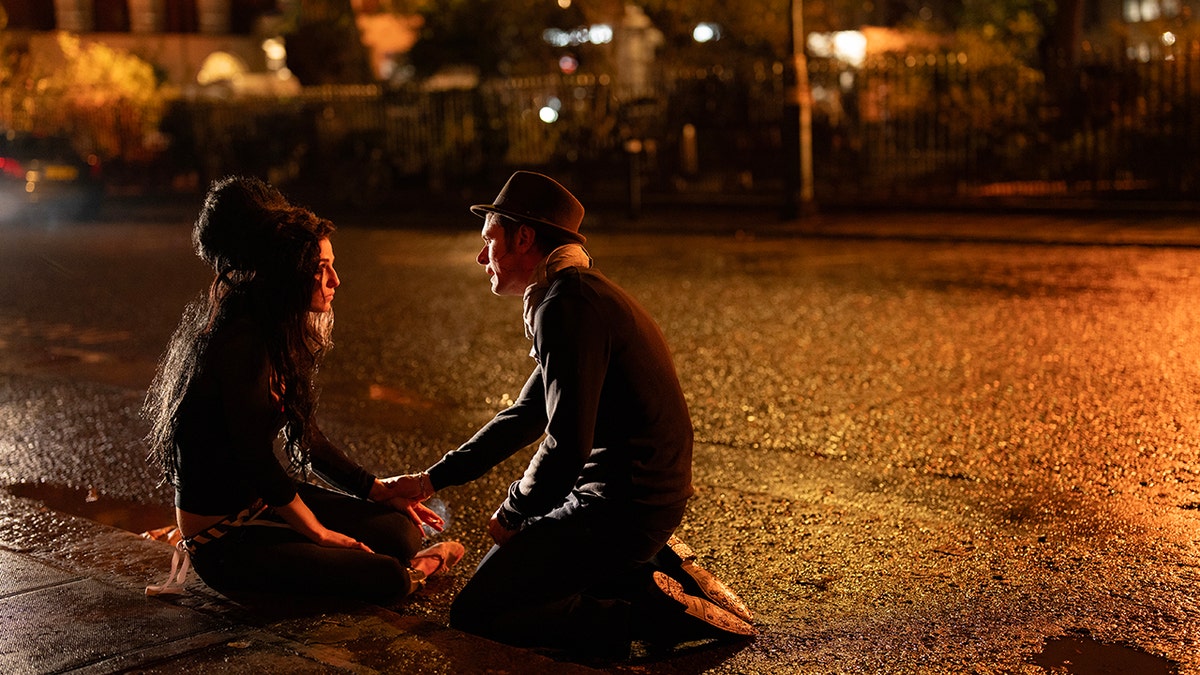
Jack O'Connell, who plays Blake Fielder-Civil, said the public got the "worst version" of the couple. (Dean Rogers/Focus Features)
AMY WINEHOUSE'S EX FILES $1 MILLION CLAIM ON LATE SINGER'S ESTATE
"I think he's definitely very misunderstood and very far removed from the person that I met," O'Connell said of his portrayal. "It was important for me to do some justice to that."
Taylor-Johnson told Yahoo Entertainment she was keen to avoid judgments often held by the public about Winehouse and her relationships.
"Whatever our judgments are of situations that she was in or people that she loved, it was irrelevant to the story that I was telling because we were in her creative soul as she created one of the best albums of our time," she said. "[Amy] was so open about her feelings and so authentic to them and had no judgments, and so I had to be in her truth and put my feelings and everyone else's judgments, as well, to one side and just go back to the music, and go back to how she felt constantly. So in a way it was obviously very challenging, but quite straightforward because she was [straightforward] in that sense."
Taylor-Johnson told the BBC that ultimately, "paparazzi and addiction" are the villains of the movie, not Fielder-Civil or her father.
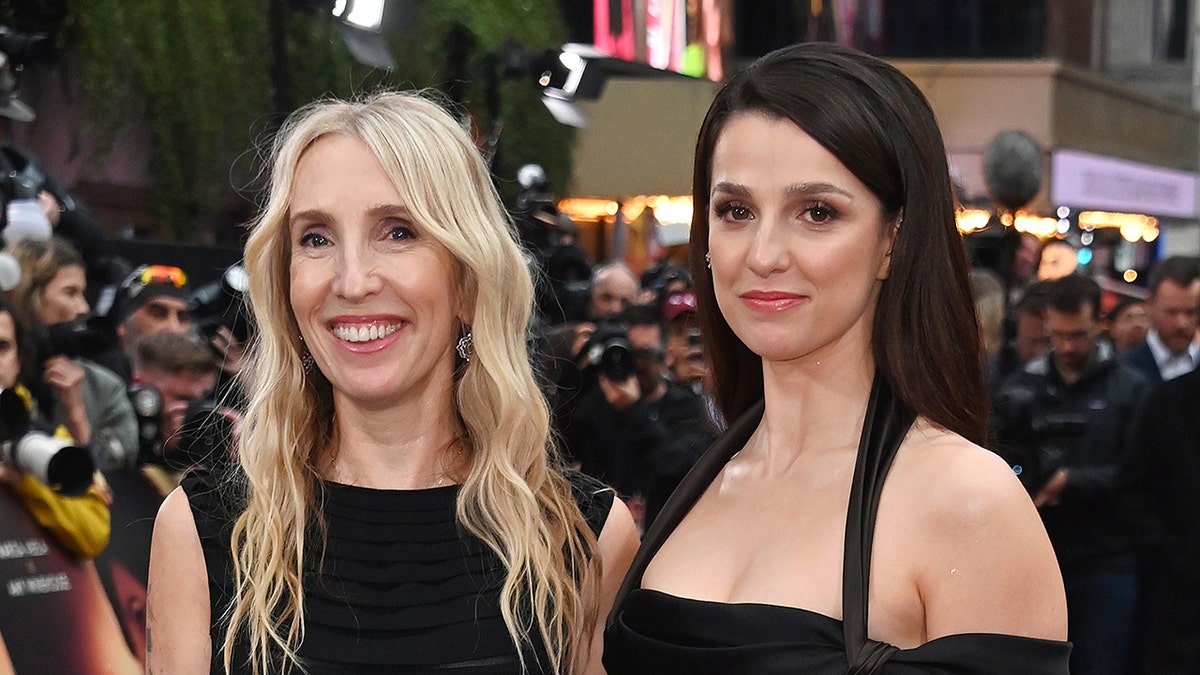
Sam Taylor-Johnson and Marisa Abela both feel the paparazzi are the real villains of "Back to Black." (Dave Benett/WireImage)
CLICK HERE TO GET THE FOX NEWS APP
"I felt like we maybe had evolved to this place of maybe that wouldn't happen now - but it feels like it is happening now," she said later in the interview.
Paparazzi proved to be an issue while filming, mimicking Winehouse’s life.
Abela told the L.A. Times that photographers snuck on set with a group of extras dressed as paparazzi during a scene.
"Once while we were filming, one came up to me and said, ‘You can’t get rid of me. I’m like a bad smell,’" she said. "It was definitely difficult to continue at some points during the work because it’s hard to pretend that they’re not there. But to think about what Amy must have gone through as a 22-year-old woman on her own is so grim."
"Back to Black" is in theaters now.






